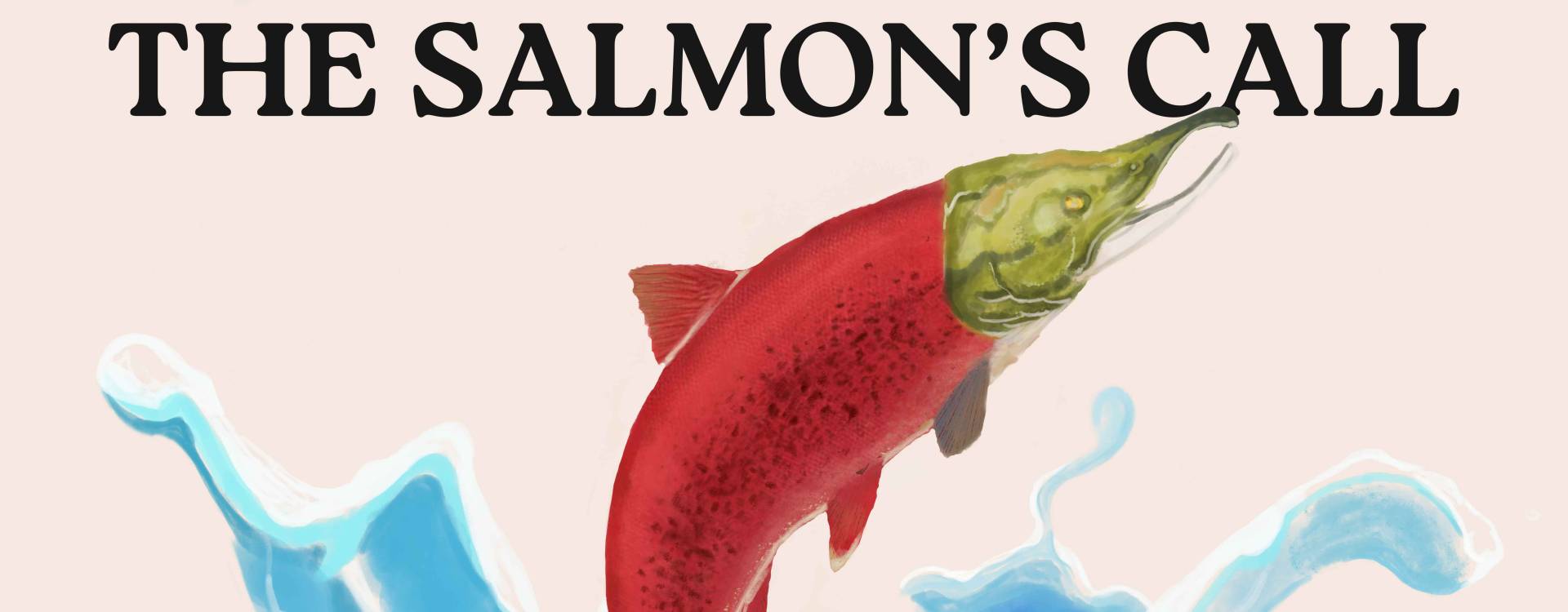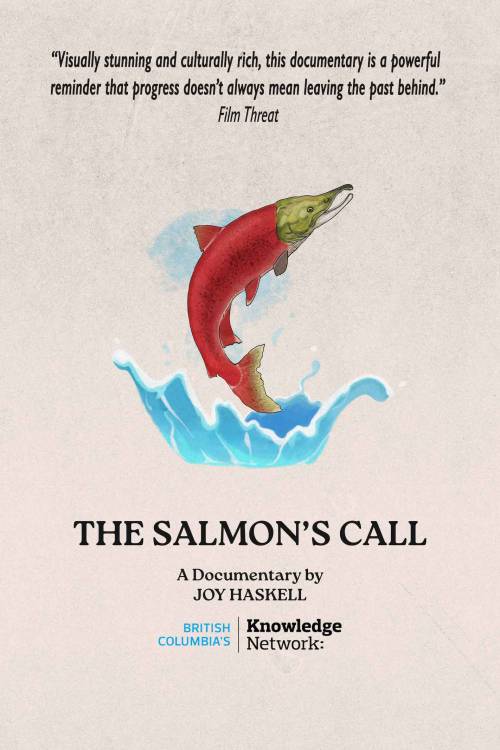

The Salmon's Call
Synopsis
The Salmon’s Call is a powerful documentary that explores the intricate spiritual and cultural relationship between wild salmon and Indigenous people that has lasted centuries. It is told through an Indigenous lens and gives a unique voice to this vital symbol of renewal, transformation, and resilience. We go on a breathtaking journey with the Sockeye salmon from the West Coast waters of British Columbia, traversing the Fraser River, through the Chilcotin and the Stuart River (Nak’alkoh) and Stuart Lake (Nak’albun) situated in Northern British Columbia. Along this journey, we will meet various members of the community from elders to youths as they share their rich connection to the salmon.
Discover the vibrant culture of passing down traditional fishing practices, learn about the salmon cycle, the unique ways of catching and preserving salmon, and how Indigenous artists take inspiration from salmon to create beautiful artwork.
The documentary sheds light on the hidden dangers of fish farms in the West Coast, and how the disruption in the natural cycle of the salmon has severely affected the ecosystem’s health. As the documentary concludes, the protection of wild salmon is now looking ahead to the next generation of youth to carry on the call. The Salmon’s Call aims to bring insight into Indigenous culture and the importance of salmon as well as inspire individuals, communities, and policymakers to prioritize the conservation of wild salmon.
Cast & Credits
Cast:
Shauna Baker (The Red Man’s View)
Dorothy Cucw-la7 Christian
Produced & Directed by Joy Haskell (Virgin River)
Executive Producers: Andrew Williamson & Henrik Meyer
Reviews
“There is a delicate balance between nature and industry. One wants to believe the two can live in harmony for the sake of human innovation and evolution but does moving forward mean we unburden ourselves of the past? In Joy Haskell’s documentary, The Salmon’s Call, the fate of salmon is teetering in the balance as fish farms are starting to replace natural habitats…
…The Salmon’s Call is a poignant tribute to a culture rooted in nature and a chilling warning about the delicate balance between commerce and ecology. It leaves us questioning our place in the natural order, suggesting that some traditions—like the free journey of wild salmon—should be preserved, not replaced. Visually stunning and culturally rich, this documentary is a powerful reminder that progress doesn’t always mean leaving the past behind.”
- Film Threat
“We hear it often said that salmon is an intricate part of the life of Indigenous people on the West Coast, throughout all of British Columbia, in fact. This documentary shows what that means, exactly and splendidly. It features beautiful imagery, and the Indigenous people interviewed articulate the profound significance behind the images. “Salmon is my life,” at least one person says. It’s more than just a food source; it’s key to the culture, and the perseverance with which the salmon fight their way back from the ocean to where they were originally spawned parallels the people’s efforts to re-connect with their culture. Stirring words well backed by elders, chiefs and activists in this film by Joy Haskell. She’s from the Dakelh First Nation, better known as the Carrier people in central B.C.
One fisherman cites the respect the people show the salmon. The first one they catch is always eaten right away or given away. That’s to honor them and recognize how important they have been to Indigenous people forever. Several women talk about the methods they learned from their grandmothers for preparing and cooking them, or preserving them by drying them. Children eat dry salmon as if it is candy.
Getting back to the old ways helps people to re-connect. Fish farms are a menace and, as a chief from Campbell River points out, the fish are “no longer plentiful.” It’s a good overview of the resource, the people who depend on it and the key role the salmon play not just for people, but also bears, whales, plant life, even trees. The film is a call to keep alive that knowledge and to take inspiration because, as one observer says, “They fight so hard to be here.” (Available across Canada via streaming--and later broadcast-- from BC’s Knowledge Network) 4 out of 5."
- The National Observer